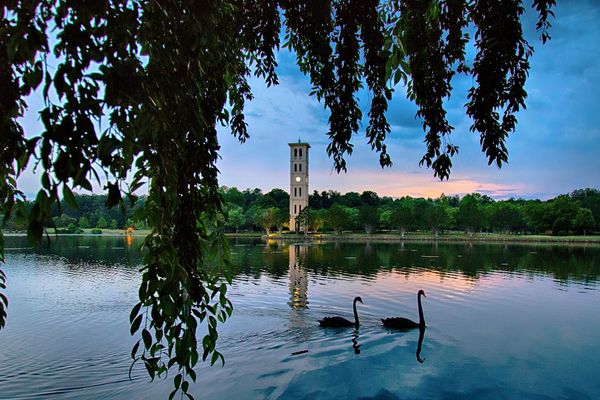There are many phrases Furman uses to describe itself: a picturesque liberal arts college, a premier university in the South, and a center for creating the nation’s future leaders. Descriptions of national and international success decorate the university’s website like medals on a war hero’s uniform. However, among all the honors and distinctions, there is something off about how the university presents itself. Like unshined brass on the decorated soldier’s uniform, Furman’s identity as a university in Greenville, South Carolina, seems to be clouded.
Recruitment of South Carolina students is notably lacking. Despite being a university in South Carolina, the composition of the student body only residually reflects this fact; the proportion of in-state students at Furman is noticeably low. Most other schools in the state have a majority of their students coming from South Carolina, displaying the fact on their websites. For example, Clemson boasts 58% in-state enrollment, and the University of South Carolina and Wofford are just behind at 56%. Furman, on the other hand, does not even list in-state enrollment on their website. Instead, they group Georgia, North Carolina, and South Carolina together. For example, the Class of 2023 profile lists the percentage of students coming from these states to be 47%. According to Peterson’s and Niche, Furman’s in-state enrollment is around half of that, listing it at 30% and 26% respectively.
Those are not the only numbers that separate Furman from its home state. According to Furman’s website, the total direct cost of attendance — not including books or personal living expenses — is $66,214. In contrast, according to census data, South Carolina’s median household income is $53,199, a paltry sum compared to the massive $181,500 median household income at Furman. While Furman does grant a fair amount of aid to students who need it, the price tag alone is cause for many South Carolinians to balk at the thought of applying.
While finding talented students from out of state can prove to be a boon to any university, every school’s primary focus should be the development and recruitment of students from their home state, with an emphasis on the local community. In-state students have more of an incentive to remain in South Carolina due to family ties and other connections they have made throughout their life. As a result, they will use the knowledge and skills they learned while at Furman to help improve their communities that give back directly to Furman, whether that community be Greenville or just South Carolina in general. By training the future businessman, state congresswoman, and other local and state leaders, Furman can reap the fruit of their students’ labor while also giving back to their home state, developing a positive symbiotic relationship.
I do not mean to attack or belittle out-of-state students in any capacity. Their presence is not a problem, and they contribute to campus in meaningful ways. Rather, the problem lies with the university’s recruitment and admissions policies. Furman seems to have an identity conflict. It is not an identity crisis, as that would overstate the urgency of the issue, but there is a conflict in Furman’s identity nonetheless. Whether intentional or not, Furman seems to be distancing itself from its identity as a South Carolina university. When in-state students are such a small minority group on a campus in their own state, the university’s priorities should be called into question.
